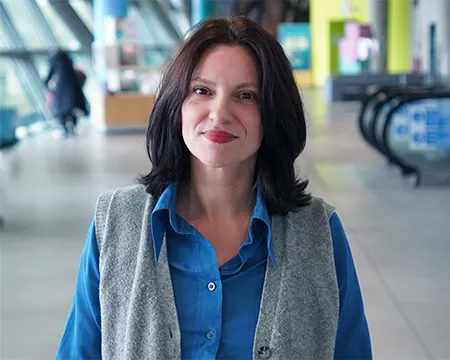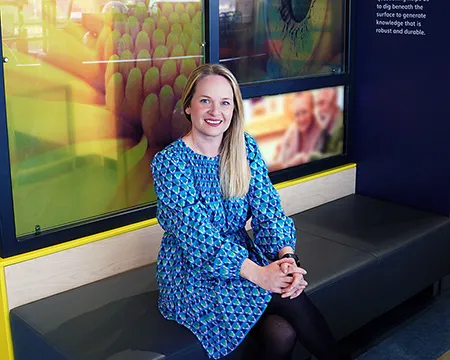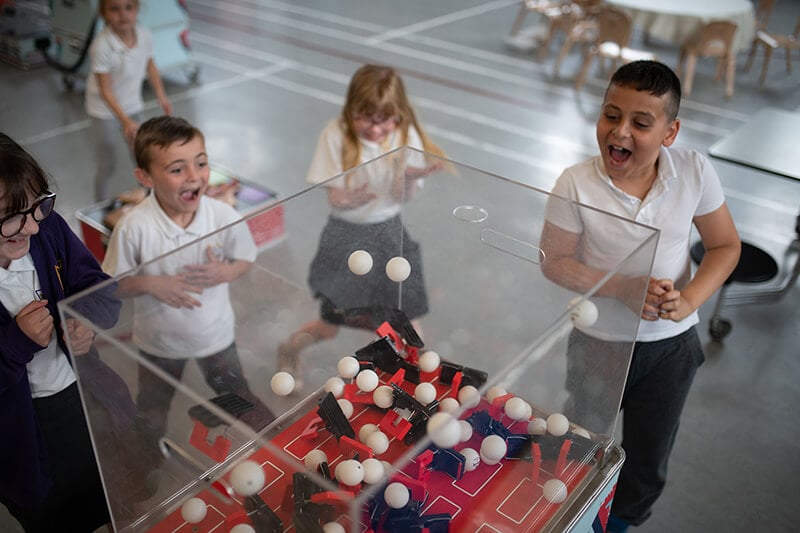How a 500-year-old invention programmed your auto-correct

Ever wondered why auto-correct behaves the way it does? Glasgow Science Centre's Pat Nehls takes a journey to explore how a 500-year-old invention has come to influence today's computer programmers and the knock-on effects for languages.
Technology Shapes Language
Language is at the heart of our lives as humans, but most of the time we do not even realise. Every once in a while, we need to stop and think for a second about how you spell this word or what that abbreviation means. In those moments, we might ask ourselves: why is English spelling so weird? Why do people spell things differently online? The simple answer is that technology shapes language and the change never stops.
The Printing Press
If we want to look at the origins of today’s spelling, we need to go back more than half a millennium. The printing press first came to Britain in the late 1400s and if you have ever seen Chaucer’s Canterbury Tales, you will know that English looked quite different then to what we are used to now. Today, we call the language people spoke between roughly 1100 and 1500, ’Middle English’. There were so many wildly different dialects that even people in neighbouring counties sometimes struggled to understand each other. That did not matter so much when most folks did not travel and few could read and write. Every book had to be copied by hand and so every scribe could easily change the text to their own dialect.
All that changed when the printing press arrived and made it possible to print hundreds of copies of the exact same text in the time it would take to copy just one book by hand. It was no longer practical to have books in all the different dialects and so a ‘standard’ way of speaking and writing English was chosen by the printers. This standard was not any better or more correct than any of the other dialects, it was simply the way that the printers and their neighbours in London spoke.
How We Speak Now Sounds Different to 500 Years Ago
Today, we still spell most words like these printers decided they should be spelled 500 years ago. But language constantly changes, so the way we speak now sounds different to back then and a lot of the spelling does not really make sense anymore. ‘Though’, for example, used to rhyme with ‘loch’ and if the spelling of it was invented today, ‘tho’ would make much more sense. People have noticed this, of course, and so we see ‘tho’ all over our messages and the internet.
For linguists, people who study language, this is not surprising at all. Humans are always trying to find the most efficient way to do something and that includes communication. We are a lazy bunch, but that is okay, because it helps us find better ways of doing things! Language changes because we are always trying to find a balance between making it easy to make ourselves understood and to understand. It is easy for us to make the sound ‘to’, but someone who hears it has to think about whether it is ‘to’, ‘two’ or ‘too’. When it comes to spelling, we made the opposite choice. By having different ways of spelling words that sounds the same, the writer needs to do more work, but less thinking is necessary to understand what it means.
Communication Makes Innovation Possible
Language, both spoken and written, is going to keep on changing as we make different choices about what is important to us when we communicate. Different technologies will shape these changes as well, just like the invention of print, text messaging and emoji did. There will always be more than one way of speaking, depending on the person, place and situation. A shared ‘standard’ helps us communicate with each other across the globe, but our dialects help us feel a part of our local community.
Neither of these is better than the other, but unfortunately the idea of ‘correct language’ has been used to oppress people in racist and classist ways. There is no such thing as ‘good English’, but this idea has often been used as a reason to keep people out of the conversation. The important thing to remember is that we have a right to self-expression, be that with dialect, slang or switching between languages. At Glasgow Science Centre, we want everyone to be part of the conversation, because knowledge matters and belongs to everyone, just like language.
There's no right or wrong way to share your ideas with the world. While innovation shapes communication, communication is what makes innovation possible in the first place. We cannot wait to meet you at the science centre, have a nice chat and hear about your ideas!
Further Information
This blog post, written by Pat Nehls from Glasgow Science Centre, is adapted from an article that first appeared in Glasgow Times in October 2022.
Idea No59
Celebrate the innovative spirit in us all at Glasgow Science Centre's permanent exhibition, Idea No59.





